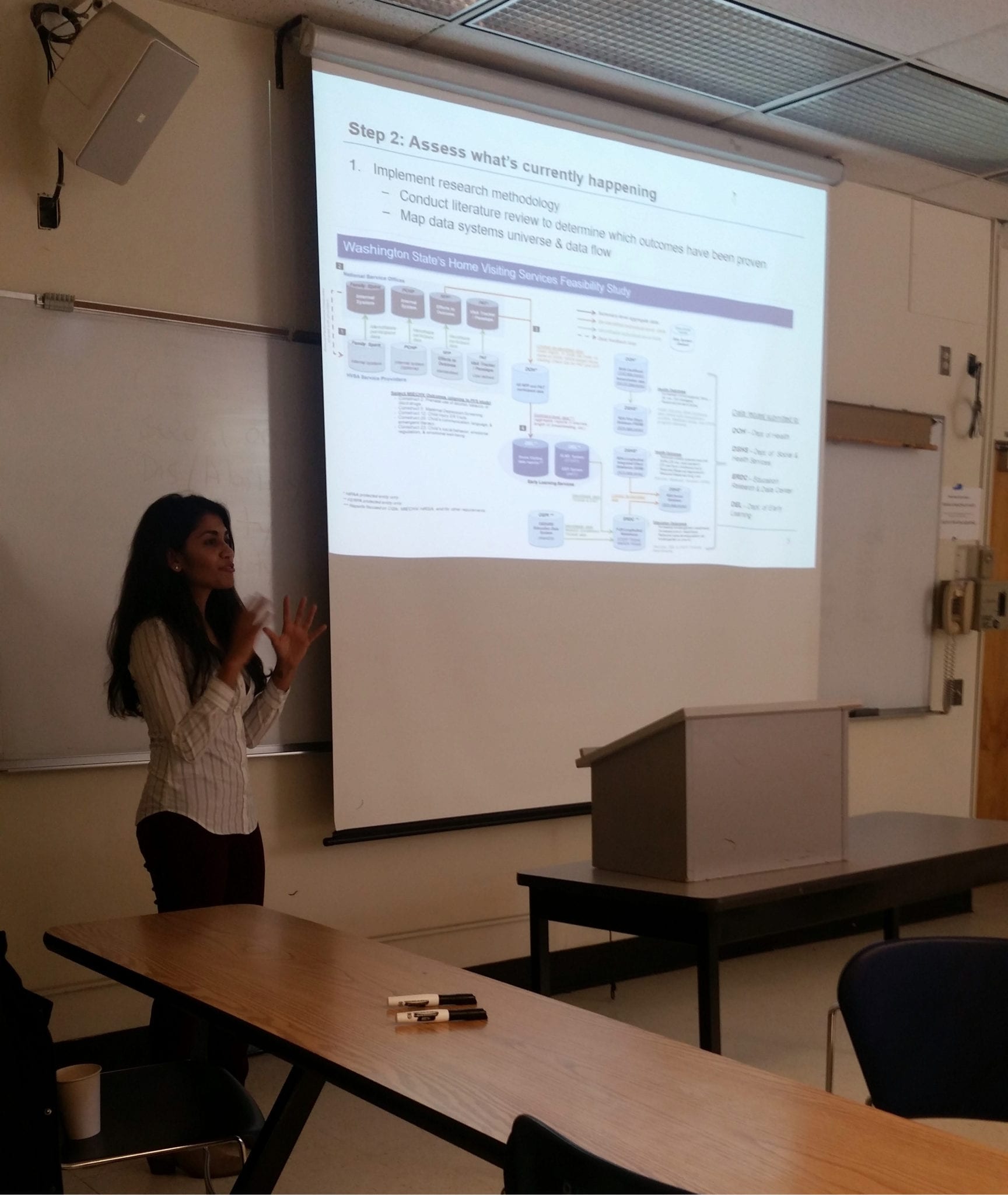Future Generations Eager to Drive Data-Driven Social Policy
By Priya Shah and Dan Peck
In early April, Third Sector was invited to share our approach to performance-based policy at San Francisco State University (SFSU). We shared our expertise in leveraging data to inform social policy to a class of junior and senior sociology students taught by Professor Jason Luger. The highly interactive 90-minute discussion not only combined findings from our data systems work with the sociological theory discussed in their coursework, but also resonated with the students’ own personal, community-based experiences.
We commenced the group discussion with a quick case study of our Social Innovation Fund project in Washington State. We showed how social research methods were used to assess Washington State’s existing data system's ability to serve the most at-risk mothers with home visitation services. We demonstrated how our research findings could improve Washington State’s data systems, thus enabling social service policies to target those most in need.
As we introduced our work, the students provided several examples of their own social research project topics. It wasn’t long before we were collectively able to draw parallels between their studies and our Pay for Success (PFS) research, as both used a data driven researching framework to investigate different social issue areas. What excited the students the most was the manner in which Third Sector used these frameworks to inform outcomes-oriented policy decisions on behalf of underserved communities across the United States.
Most importantly, students recognized the opportunity for data-driven decision making to uplift their local California communities. One student shared how home visiting services could improve long-term outcomes in her community in Richmond, California, inquiring on how she could get involved in home visitation. Another student discussed her work with a Bay Area community provider serving children in foster care, highlighting her own observations around the importance of linking data systems across government agencies and service providers to create a holistic view of child welfare. Music to our ears!

We left SFSU’s beautiful campus heartened by the next generation’s nuanced understanding of the value of outcomes data. In only a few years time, the students we spoke with may be the leaders leveraging administrative and provider data towards effective and community-focused policy.

